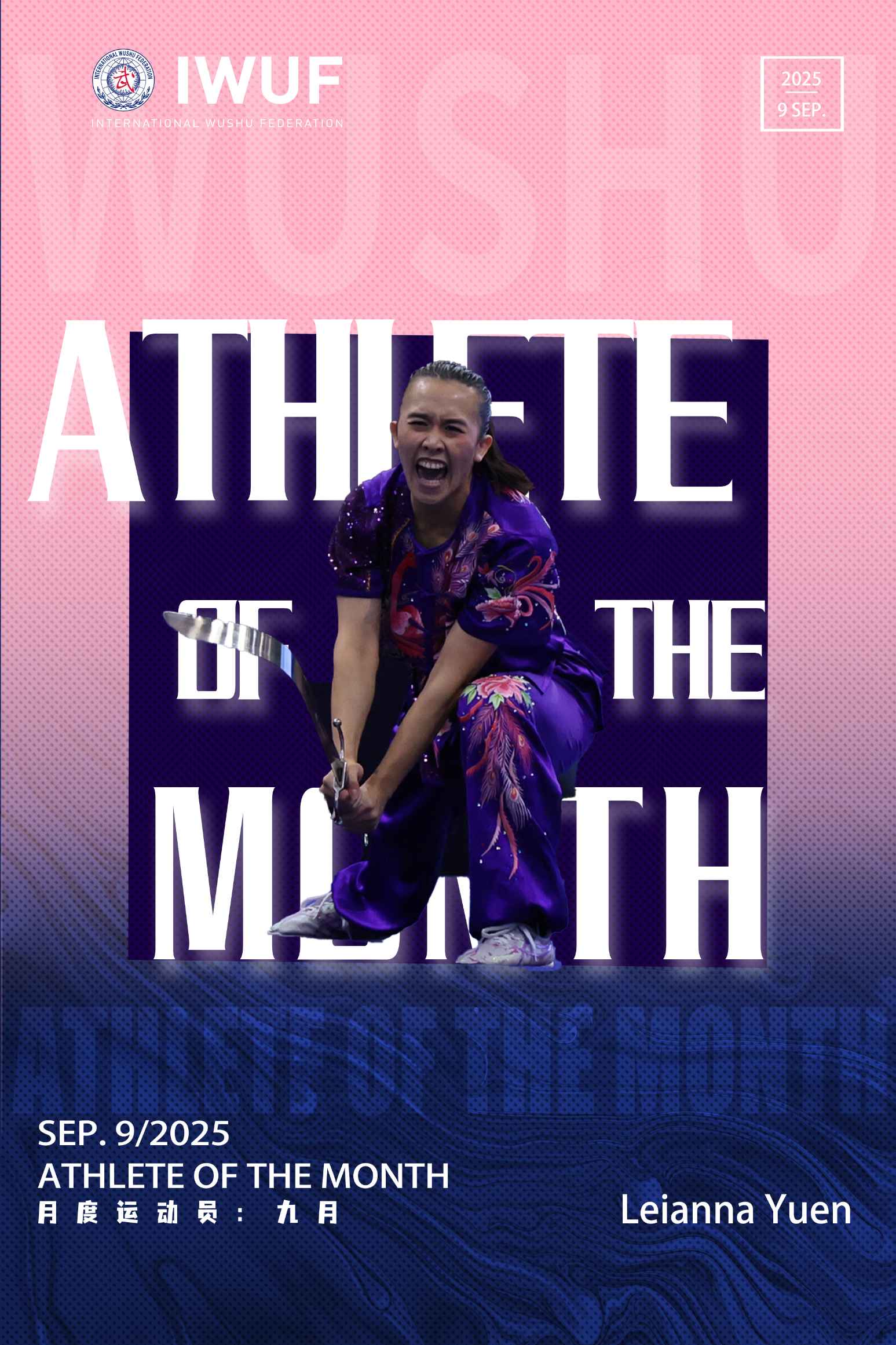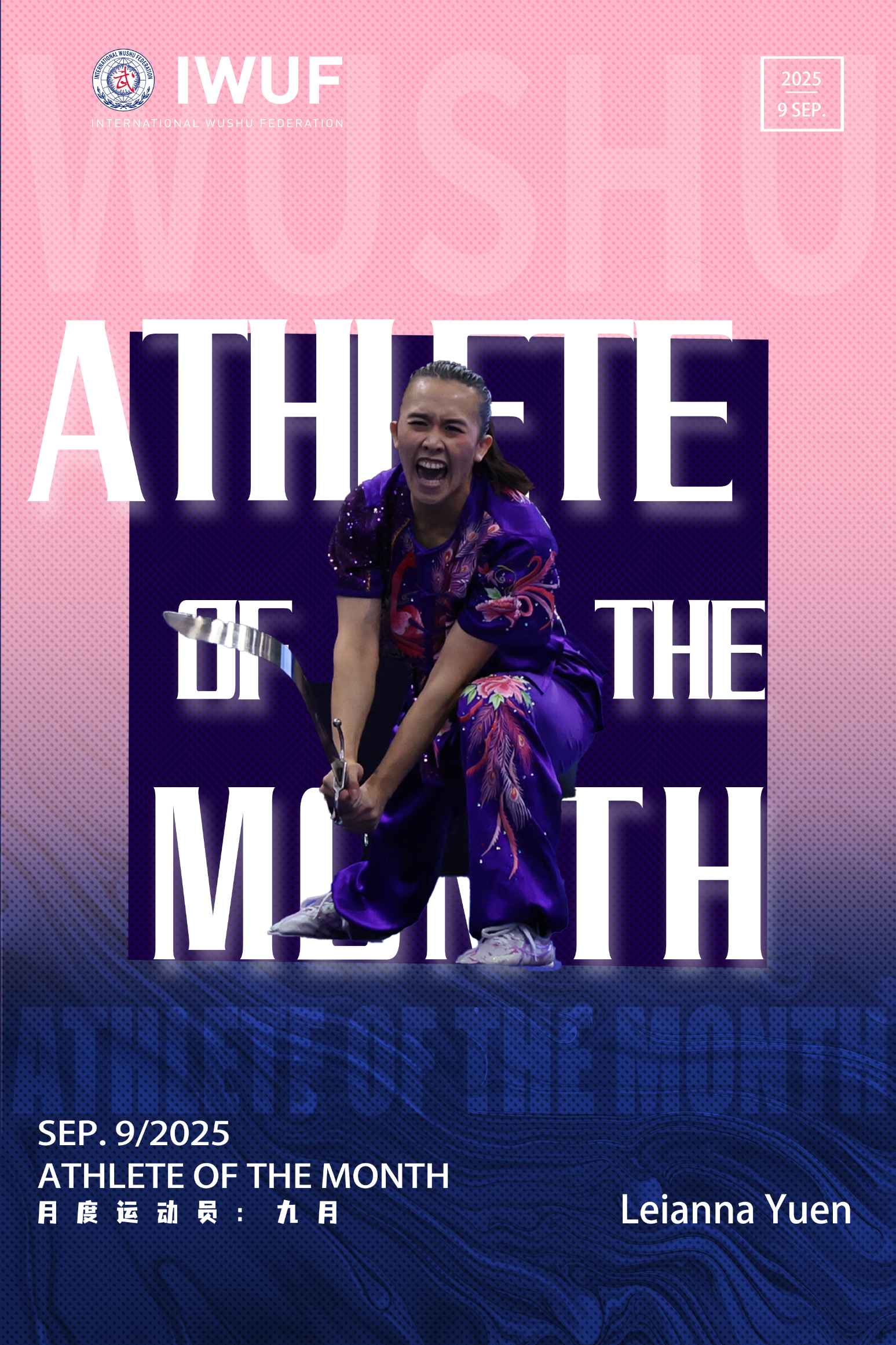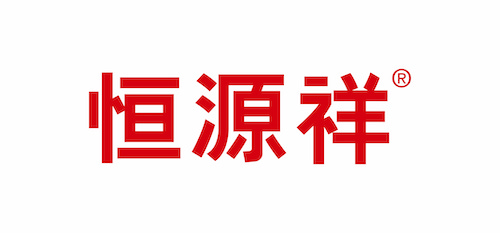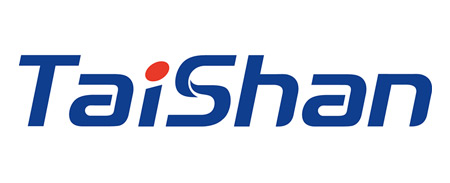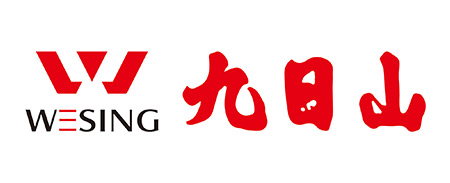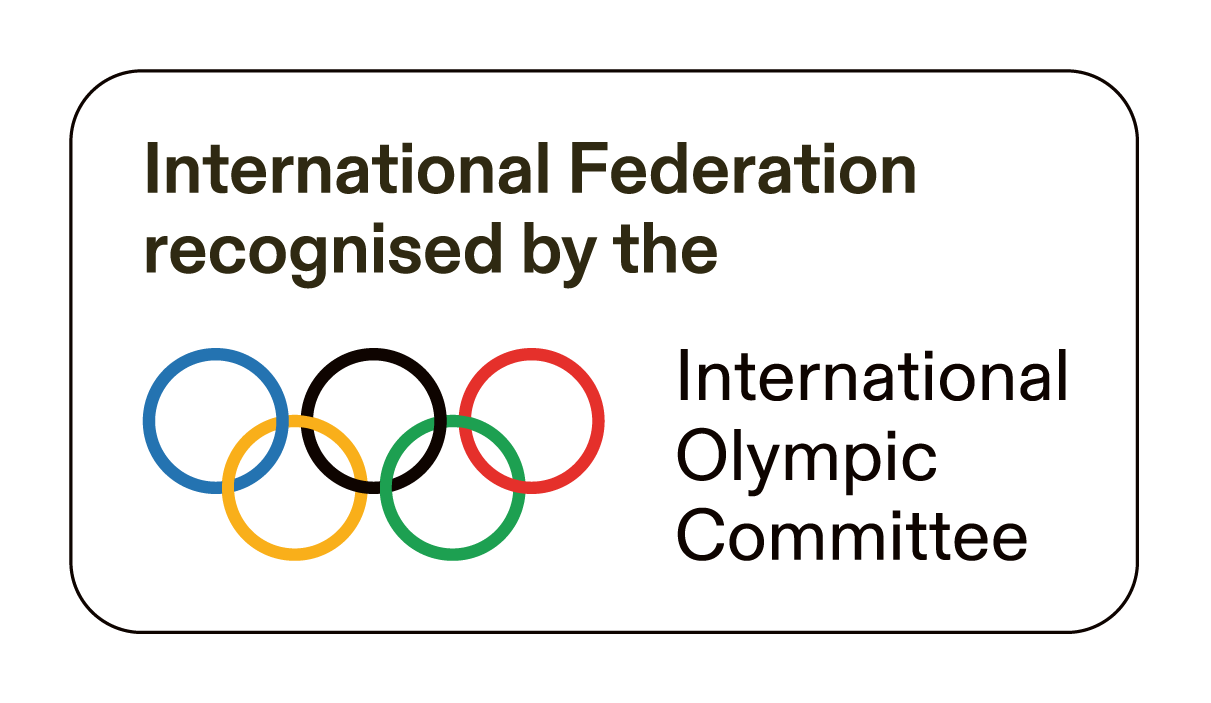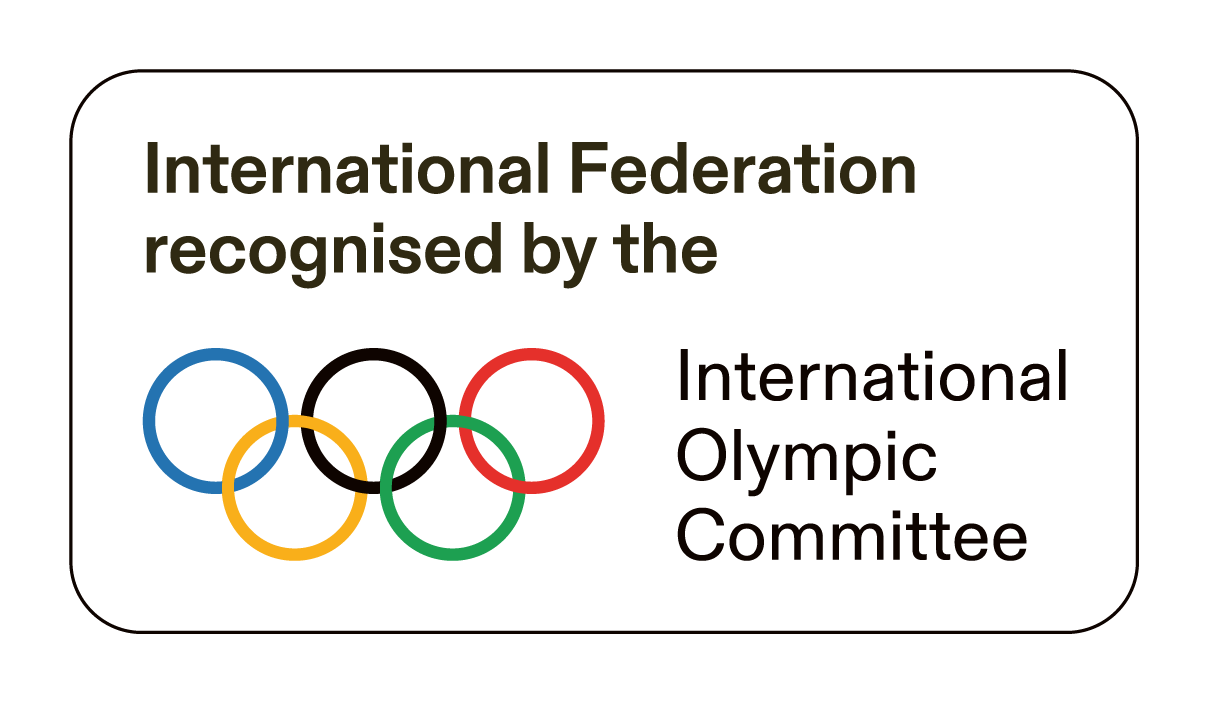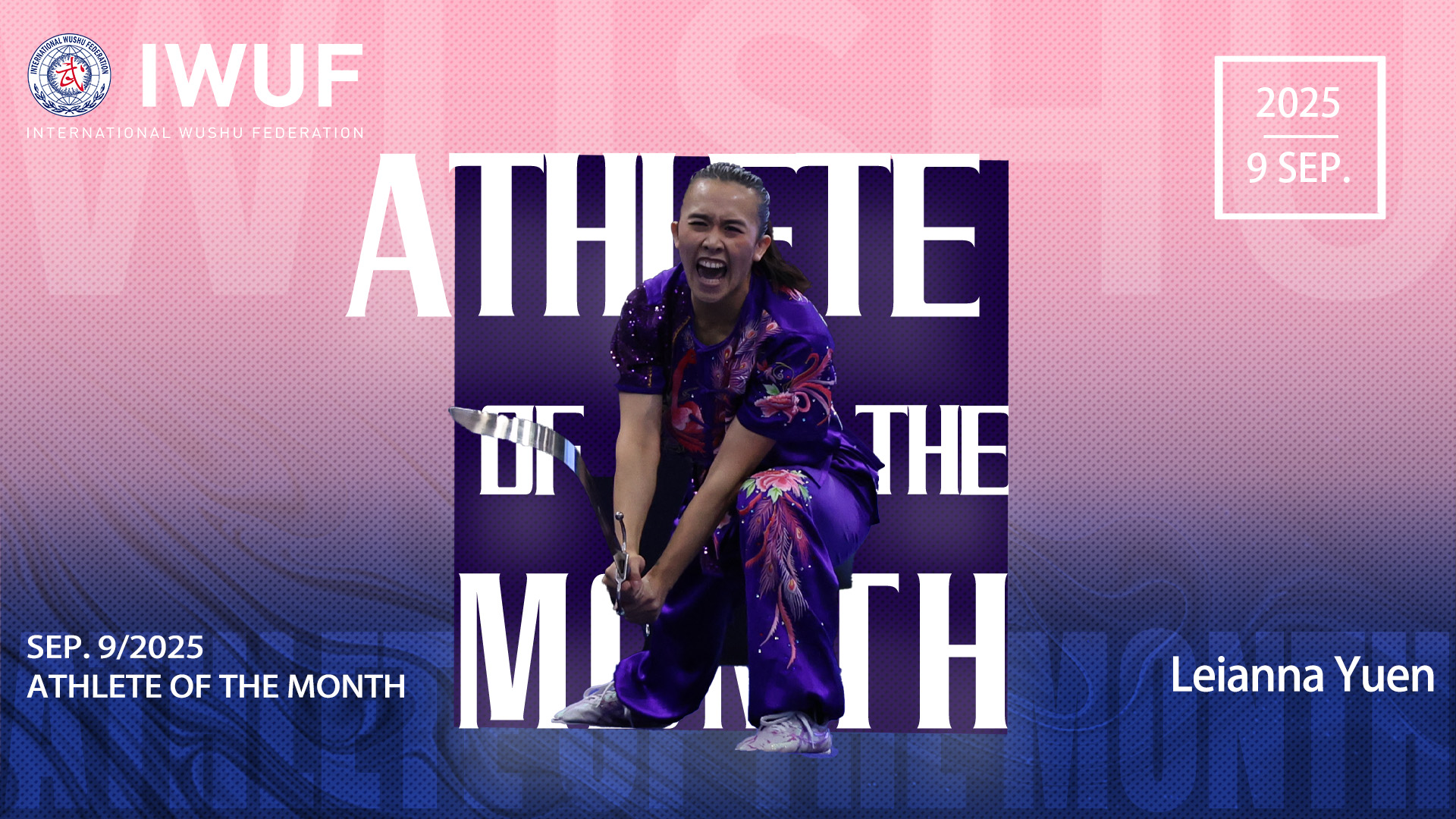
USA athlete Leianna Yuen is a rising star who won the bronze medal in nanquan at the 17th World Wushu Championships. She also placed 6th in both nandao and nangun, and will be headed to compete at the next Taolu World Cup. She honed many of her competition skills at the 14th Pan American Wushu Championships in 2024 where she won gold in both nanquan, and nangun. Also a practitioner of traditional wushu styles, Leianna took home two first prizes in nanquan and nandao at the 8th World Kungfu Championships. She was a triple gold medalist in 2024 at the Collegiate Wushu Tournament at UCLA where she enjoyed connecting with the collegiate wushu community.
Wushu Beginnings
Leianna Yuen, 23, hails from sunny San Diego, California, and she recalls how she first got into the sport of wushu. “When I was 11 years old,” she says. “I told my parents I wanted to do martial arts, and they put me in wushu. I liked the challenge of combining speed and power with stability and detail. My first couple years of competition, in 2015 and 2016, were at local competitions where I performed mostly elementary forms.”
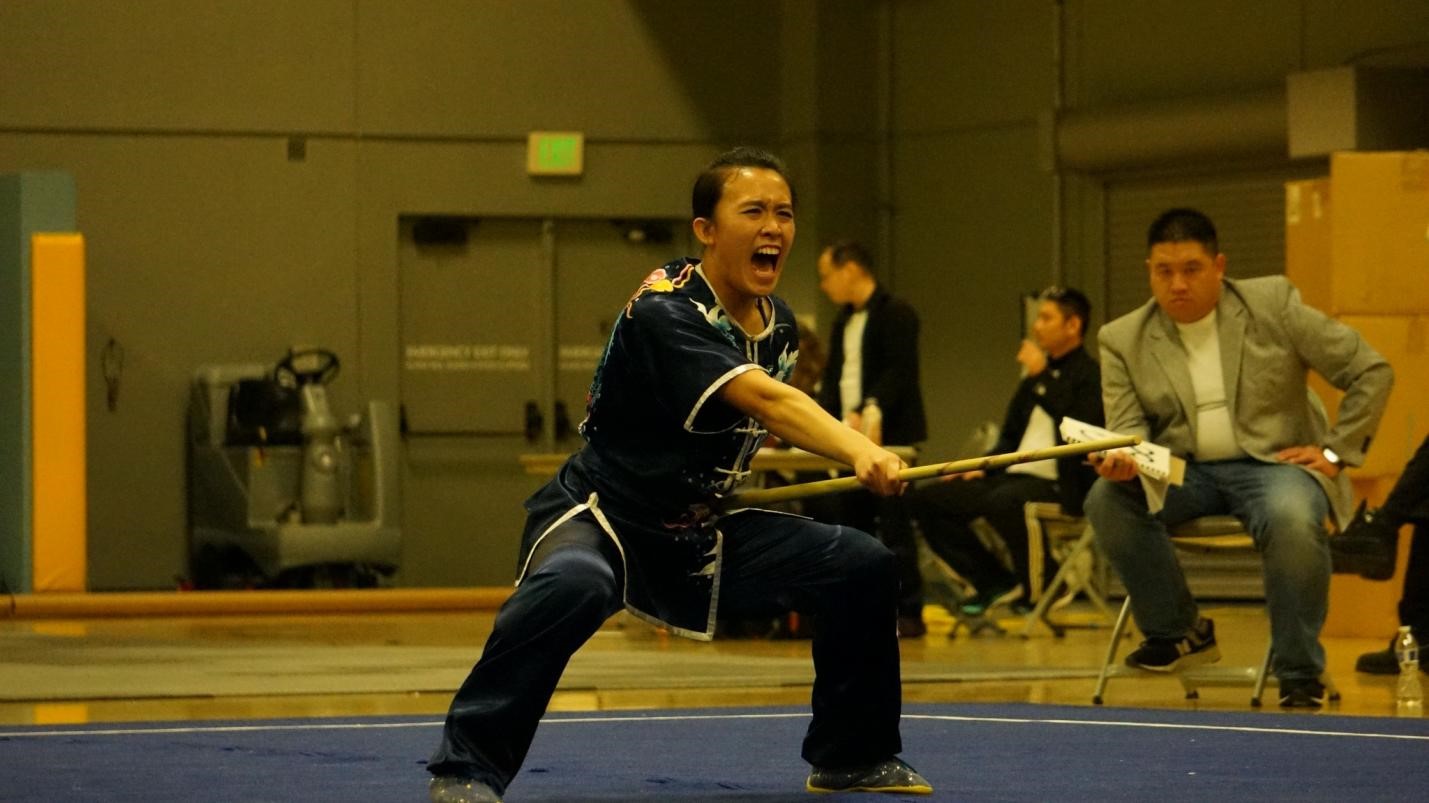
“I trained very little in the beginning,” Leianna recalls. “I was doing wushu for fun, so I only practiced a couple times a week. I remember there were few competitors in my division as I was older (12-14) still doing C group elementary forms. I didn’t start taking competing seriously until I watched my teammates compete at US Junior Nationals in 2016. From then on, I started training a minimum of five times a week. My first junior nationals was in 2018, where I competed in nanquan, nandao, changquan and jianshu with optional forms. I performed quite poorly at my first Nationals, mostly because I was very nervous and hadn’t competed in such a serious competition before. This was very disappointing to me and inspired me to keep working harder for the future.”
A Balance of Traditional and Contemporary Southern Styles
As Leianna began building her career as an athlete she found interest in both traditional and contemporary wushu. “I practiced traditional and contemporary wushu at the same time,” she says, “with a focus on contemporary wushu, as I wanted to compete in Nationals. Competing at traditional competitions was a tool to help me become more experienced and confident on the carpet. My coaches chose Southern style for me early on because my body type fit the style better. I tend to be stiffer in my movements and have a hard time extending my body so Southern was the best fit.”
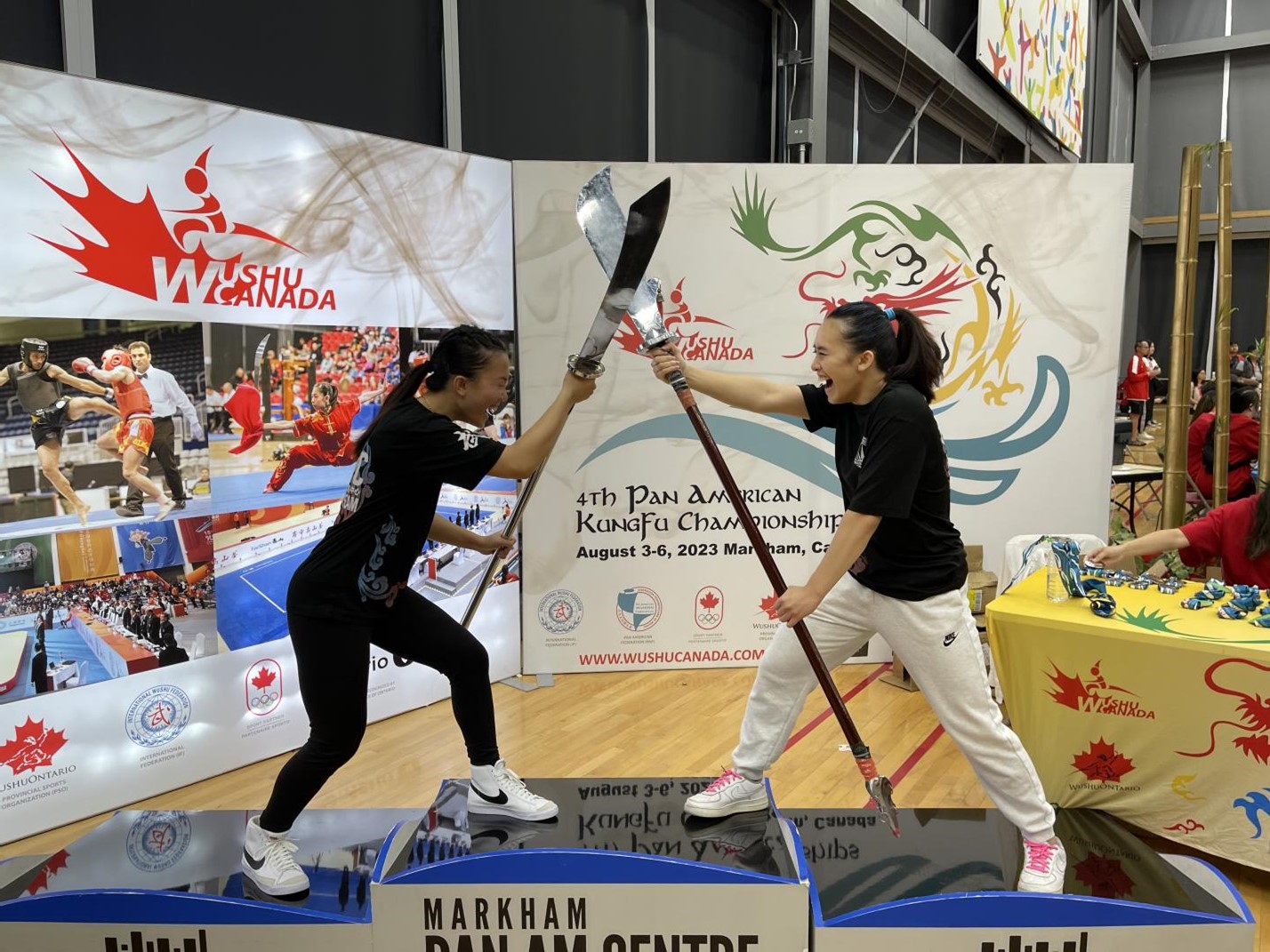
Leianna’s international debut was in 2017 at the World Kungfu Championships in Emeishan where she was happy to win prizes in two events, and also to travel in China. She remarks, “The experience was a lot of fun overall and felt like a reward for all my hard work in training. I made a lot of memories with my teammates at the competition and was also able to travel with them after. I received a silver medal for nanquan and a bronze medal for jianshu. I remember sitting in the crowd watching my coach compete and hoping I could be as good as him in the future as he took home a first prize medal for nanquan and a second-prize medal for nandao.”
In 2019 Leianna returned to the World Kungfu Championships again – and won two first prize medals. She attributes the success to gaining more experience in between the Emeishan events.“In between the 2017 and 2019 World Kungfu Championships,” she notes, “I was able to compete several times, including at 2018 Junior Nationals. These experiences translated to an improved performance in 2019. I also competed in nandao instead of jianshu, which is a better event for me.”
Joining the U.S. Wushu Team
Leianna would soon transition from junior to senior competition, raising the bar, and entering a new realm of wushu. She was determined to prove herself and move forward as an athlete. “In 2019,” she says, “I competed in my first senior Nationals, performing nanquan, nandao, changquan and jianshu. I placed 5th overall in the women’s division, granting me a spot on the U.S. Wushu team. In the U.S., only the top 4 men and top 4 women qualify for the World Wushu Championships. Seeing that I was very close to that ranking incentivized me to keep working hard.”
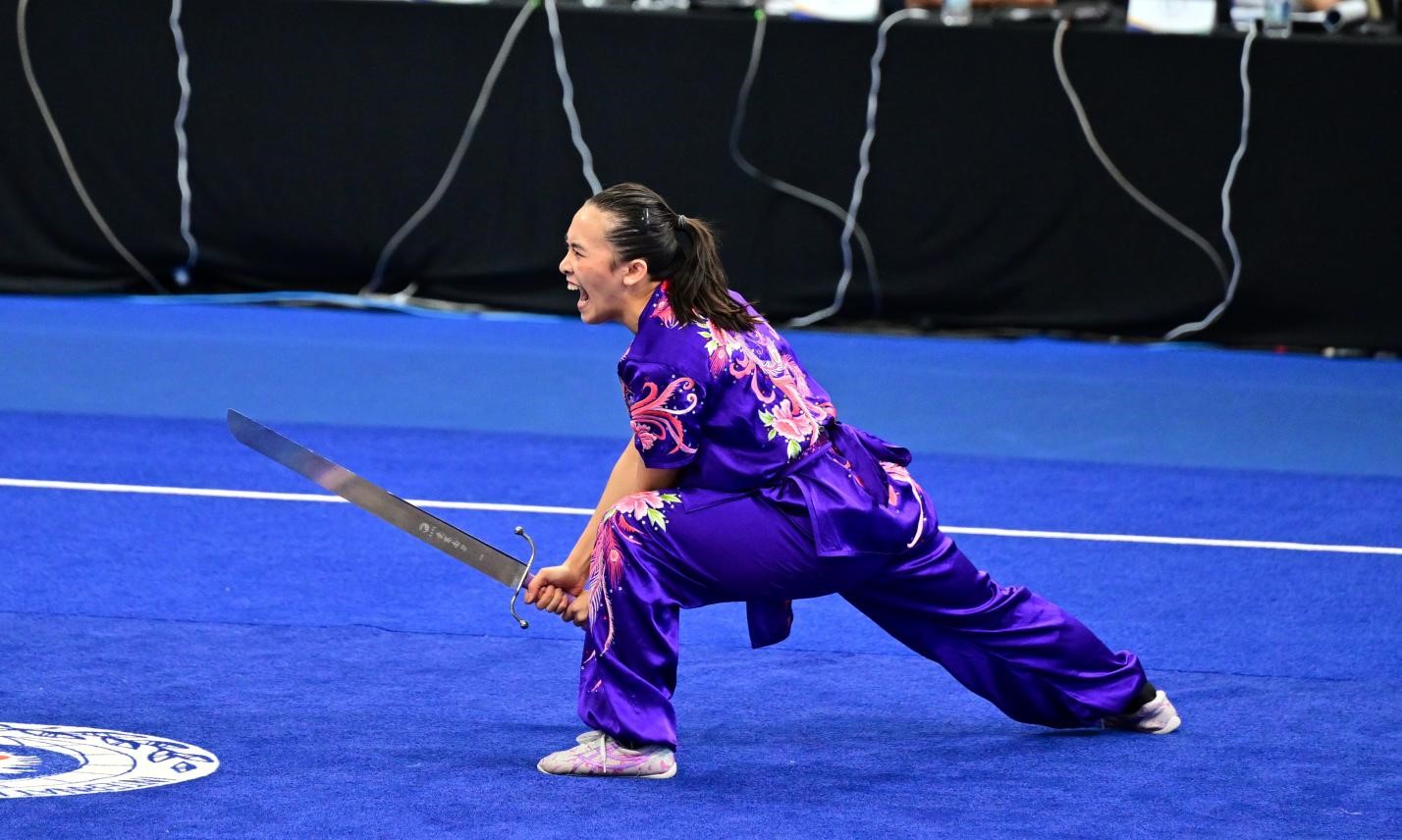
Leianna also began balancing college and her sport training, but the alchemy of the two would in fact come to produce gold – she became a triple gold medalist in 2024 at the Collegiate Wushu Tournament at UCLA. “I competed in nanquan, nandao and nangun at this competition,” she says. “This was my only collegiate competition, partially because of COVID my first two years of college, and a severe ankle sprain in my third year. There are a lot of athletes that discover wushu in college and I really enjoyed the opportunity to connect with athletes of all levels from across the country.”
Pan America Kungfu and Wushu Gold
The Pan American Kungfu Championships and Pan American Wushu Championships would both help Leianna hone her competition skills and give her broader experience on the carpet. In 2023 she won 3 gold medals in the Pan American Kungfu Championships, where she focused on her traditional wushu skills for the moment. “I performed nanquan, nandao and guandao for the first time at this competition,” she remembers. “Since I had just finished competing in 2023 Nationals, where I was not successful at qualifying for the World Wushu Championships, I had time to pick up a traditional form. I chose guandao because I had watched my coach and several of my other teammates practicing it and I felt I could pick it up quickly because the basics were similar to nangun.”
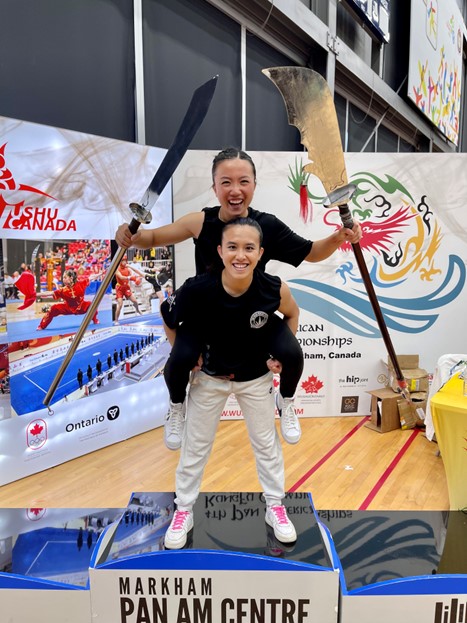
In 2024 Leianna debuted at the Pan American Wushu Championships, winning gold medals in nanquan and nangun. The international aspect of the continental competition allowed Leianna to level up again, and became champion despite a fresh injury. She says, “Contemporary wushu was still the focus of my training. I qualified for the Pan American Wushu Championships because of my performance in 2023 nationals where I placed 6th overall in the women’s division. I had also qualified in 2019 for the 2020 Pan American Wushu Championships, but it was cancelled due to COVID. I sprained my right wrist the week prior to the competition, which is why I did not compete in nandao. It was a very eye-opening experience watching contemporary athletes from other countries perform, and I made a few friends.”
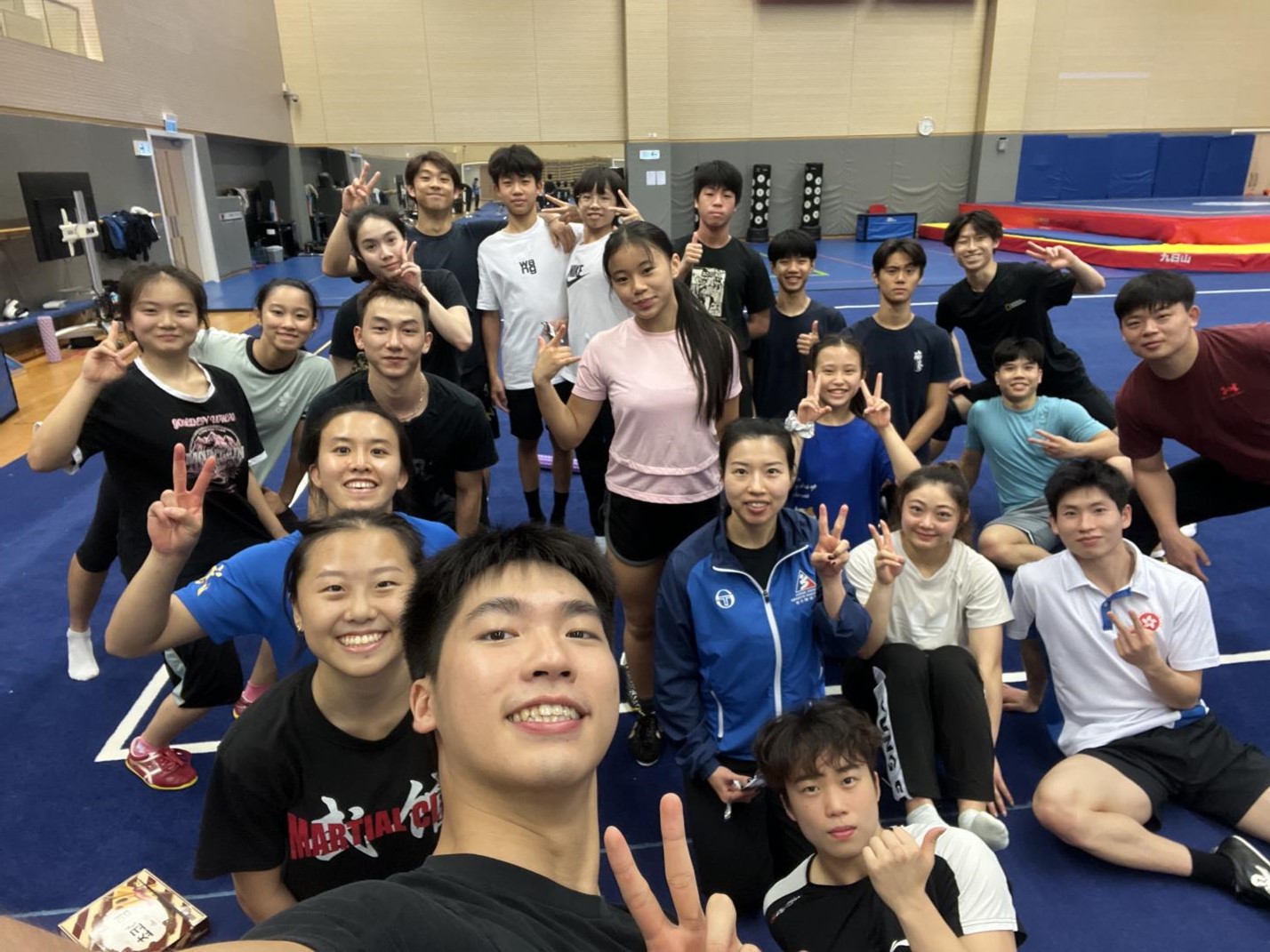
Southern Style Affinity
“My coaches chose Southern style for me because they noticed that my body fit the style better,” Leianna explains. “Pretty much from the start, I gravitated towards the style because I didn’t have to worry about opening my chest as much as Northern. I was also more successful in doing Southern style nandu; I could do more difficult nandu in Southern compared to Northern. My favorite form of the three changes frequently, but it’s currently nandao because my basics are the least refined. I enjoy the challenge of improving my weaknesses.”
Triumph at 17th World Wushu Championships
Leianna’s first World Wushu Championships, the 17th WWC in Brasilia, achieved her longtime ambition to make the U.S. Wushu team for wushu’s pinnacle competition event. But on top of this, she gave such a solid and stellar performance that she came away winning the bronze medal in nanquan.
“I was so nervous to compete!” she exclaims. “It blew my mind to meet and compete against athletes I had watched for years. Throughout the entire experience, I was so grateful for the opportunity to represent the U.S. Performing at a competition of this caliber was my career goal and having finally accomplished that was so fulfilling. My coach was also once an athlete trying to compete at WWC, but I am the first athlete from my school to be given the opportunity to compete at this level, so being able to give him the experience of participating in WWC was an honor.”
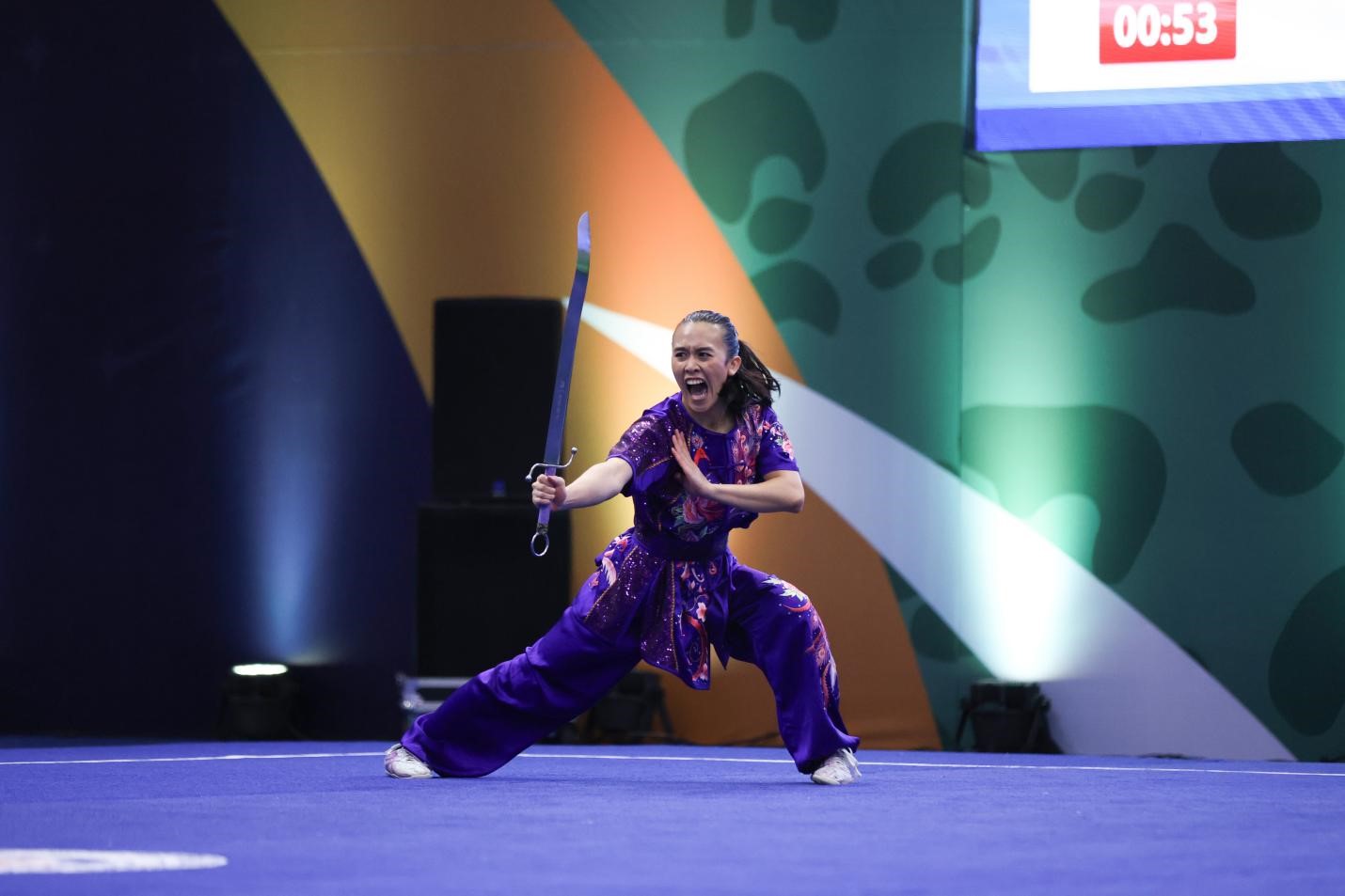
Leianna competed in nanquan, nangun and nandao, and she became the only US taolu competitor to medal at this Brasilia event. “Receiving the medal was like the cherry on top of the ice cream,” she says. “Competing itself was already the reward for me and prior to competing, my only wish was to make top 8 in one event so I could compete at Taolu World Cup. I did not even think I had a chance at the podium. Competition, especially on a highly publicized stage, has always been difficult for me, I struggle greatly with the pressure. I always believe that pushing myself to step onto the carpet is what I do for myself, but putting on the best performance I can is for my team. And I feel very proud that I was able to give them this award. I think they were all very happy with the result as well.”

With this experience, Leianna got to reconnect with old friends, and also look ahead, with added incentive, after qualifying for the TWC in 2026. She says, “It was great getting to see some familiar faces from the Pan American Wushu Championships again! And I am very excited to have qualified for the Taolu World Cup. I’m looking forward to seeing my new friends again and excited to show everyone how much I’ve improved since WWC.”
Wushu Life & Training
Leianna gives much of her sport success credit to her coaches and school .“My school and coaches are the reason my career exists,” she says. “I’ve been at the same school (San Diego Wushu Center) since I started wushu and they’ve trained me up from beginner to world-level. They always do everything they can to help me be successful as an athlete and a person. I’ve trained outside the U.S. a couple times, once in 2018 in Anhui, China and once in 2024 in Hong Kong, China and Fujian, China. I normally train at least five times a week for at least two hours at a time, but I try to do something wushu related every single day. For bigger events, more stamina training is incorporated.”
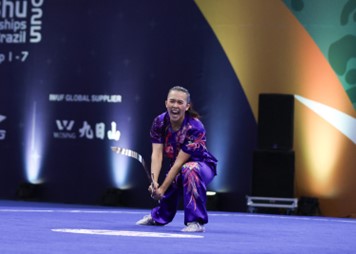
“I am hopeful that wushu will get progressively more popular in the U.S.,” Leianna muses. “The biggest challenge for athletes in the U.S. is resources. Athletes are entirely self-funded, we pay for training, competitions and travel entirely on our own. Training locations are also limited because the sport isn’t very popular in the U.S. However, there are more opportunities for competition now than when I started, and the size of local competitions has increased, which is a positive sign to me that our sport is growing. I am very pleased that wushu is being represented at the 2026 Dakar Youth Olympic Games. I hope that young U.S. wushu athletes will have the opportunity to perform.”
Challenges, Rewards & Community
We asked Leianna what is the biggest obstacle or challenge she’s had to overcome in her wushu career. She replies, “Figuring out how to mentally prepare myself for competition is the biggest challenge for me. Because I want to do my best, I put a lot of pressure on myself, and I worry that I will make a mistake on the carpet. Learning how to build confidence in myself and calm down before my performance was only something I feel like I mastered within the last year, and it was a critical component to my success this year.”

“My favorite part about being a wushu athlete,” she continues, “is training with other athletes. Being able to bond with other athletes over the challenges of training is a connecting experience that I deeply cherish. I love having the opportunity to learn from other athletes, and I always feel encouraged to push myself around them.”
Leianna adds, “My family is very happy that I’ve found something I’m passionate about. They have done a fantastic job making sure that I have everything I need to pursue competing and training at this level. They try to come to every competition they can and if they can’t, they always watch me compete live, wherever I am in the world. I am so grateful for their support, I truly would not be where I am today without them.”
Wushu, Balance & Future Goals
Leianna currently works as a lab assistant for a large healthcare system. “I graduated from college in 2024,” she tells us, “and studied biology. Balancing training and competing with working is the second largest challenge I’ve had to overcome. Wushu training is like a second job for me so it’s a huge balancing act trying to stay healthy, work full-time and get training in. Most of my extra time outside of wushu and work is spent with family and friends.”
Leianna is still a rising star, with an exciting career still unfolding ahead of her. But she can also look to the future to wushu being a lifetime pursuit. “I certainly want to be involved in the wushu community beyond being an athlete,” she states. “As for now, I am very focused on training, but I will be thinking about how to contribute more as I approach retirement from competitive wushu.”
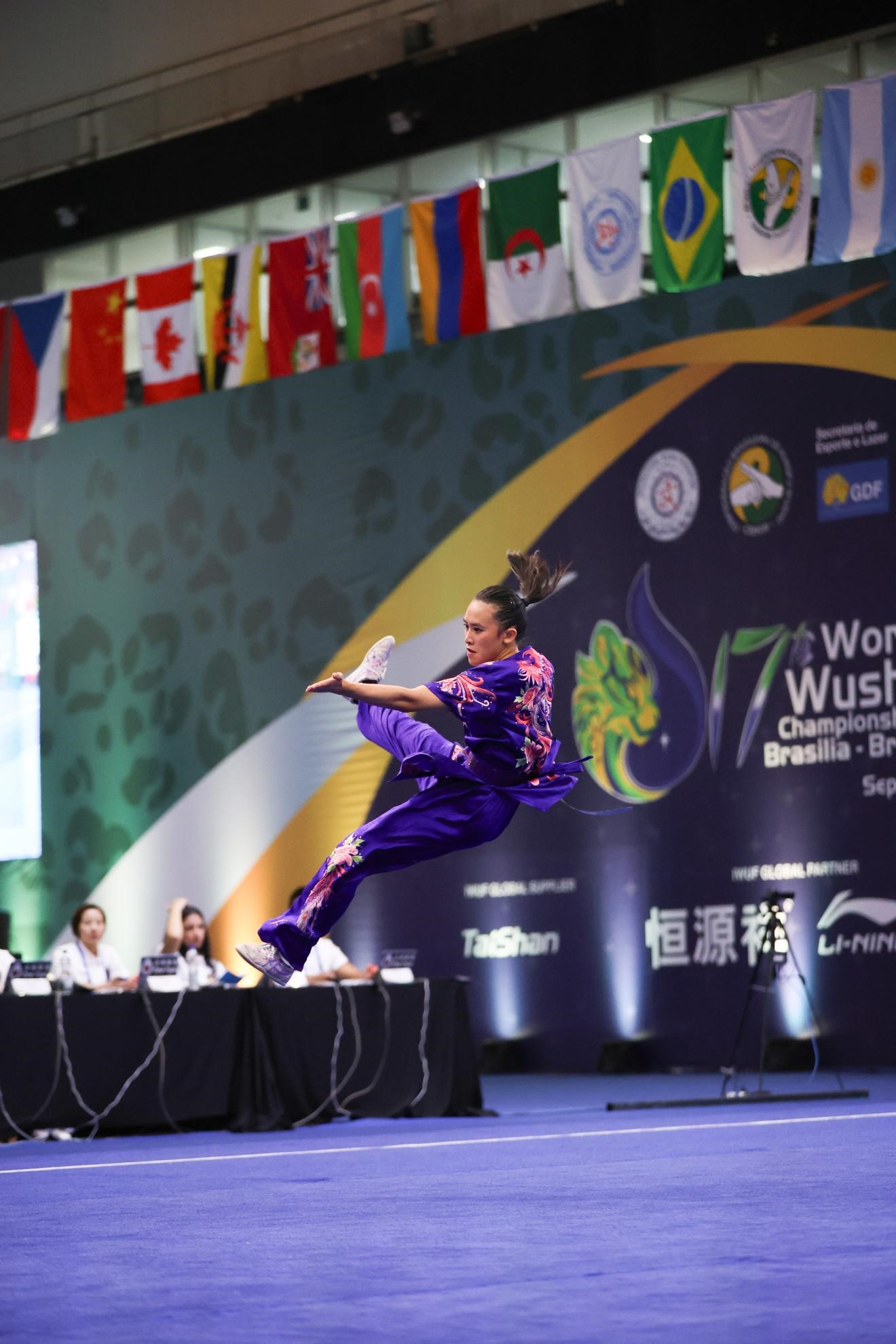
“Wushu has taught me many important life lessons that have transformed my life for the better,” Leianna concludes. “It’s taught me how to build confidence, how to be brave and how to pick myself up when things don’t go my way. My wushu goal has been the same since I started; to keep improving and put up a better performance each time I compete. I have already achieved everything I want to achieve in this sport. I have a genuine love for this sport, and I just want to show everyone what I can do. Thank you so much for giving me the opportunity to share my story with everyone. I am so grateful there’s a platform for athletes from all over the world to tell their stories.”
